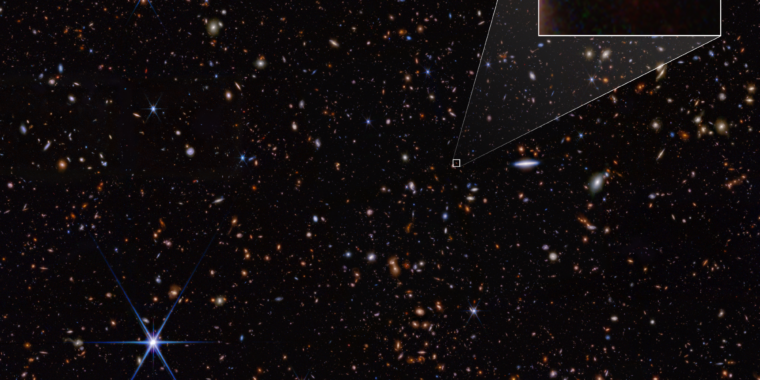In some eye-opening new results, the telescope has found and confirmed the discovery of a very bright galaxy that existed just 300 million years after the Big Bang. Based on their observations, astronomers believe the galaxy is 1,600 light-years across and has a mass several hundreds of millions of times the mass of the Sun.
“All of these observations, together, tell us that JADES-GS-z14-0 is not like the types of galaxies that have been predicted by theoretical models and computer simulations to exist in the very early universe," the astronomers said. “Its discovery has profound implications for the predicted number of bright galaxies we see in the early universe.”
I don’t like click bait…
Right? If it’s so profound, tell me. What did they discover about this difference that in unexpected from very early galaxies a d how that matters to galaxies which are brighter (and assuming younger).
Robertson, B.; et al. (2024-05-28). “Earliest galaxies in the JADES Origins Field: luminosity function and cosmic star-formation rate density 300 Myr after the Big Bang”. Astrophysical Journal.
https://arxiv.org/abs/2312.10033
